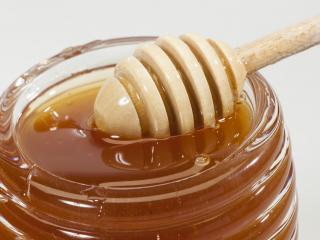Western Australia’s enviable biosecurity reputation has been protected from honey and bee product imports that could introduce damaging pests and diseases and threaten the State’s valuable agriculture and food sector.
A revised Biosecurity (Prohibited and Conditionally Non-prohibited Goods) Determination 2016 was recently announced by the Commonwealth Government.
The outcome is a result of negotiations between the Department of Agriculture and Food, Western Australia (DAFWA) and the Commonwealth, following the implementation of the Commonwealth Biosecurity Act.
The determination includes new conditions to protect the WA bee industry’s freedom from the potentially devastating disease European foulbrood (EFB).
The conditions require all honey and bee products imported into WA to be heat treated to 60 degrees Celsius or to be sourced from a country or zone that is free from EFB.
The updated import requirements have been noted in the Commonwealth’s Biosecurity Import Conditions System, known as BICON, used by importers and exporters.
Department Biosecurity and Regulation Executive Director Kevin Chennell said the positive result acknowledged the importance of protecting the State’s freedom from European foulbrood.
“As a result, honey, honeycomb, propolis and royal jelly imported to WA from overseas will be subject to specific measures to manage the risk of the disease entering and establishing in our State,” Dr Chennell said.
Interstate conditions managed by DAFWA under the Biosecurity and Agricultural Management (BAM) Act also remain in place.
“This inclusion at the national level will reinforce the State’s freedom from European foulbrood and facilitate access to discerning export markets,” Dr Chennell said.
The State negotiations have also resulted in the Commonwealth placing an alert on BICON that states it is the importer’s responsibility to check state and local government requirements to ensure the import of seed is permitted into that State or Territory.
“A total of 192 plant species that are permitted entry to Australia under BICON are prohibited from entering WA under State legislation due to concerns that they present a weed risk,” Dr Chennell said.
“This measure helps our State to remain free from some potentially devastating weeds that could threaten our grains, pasture and horticulture crops, as well as our unique environment and outdoor lifestyle.”
The department is also working with the WA grape industry to provide the Commonwealth with additional information on the risk posed by two grape pathogens potentially associated with imported grapes.
The department’s discussions with the Commonwealth also resulted in an assurance that the BICON conditions to mitigate the risk of the tree disease, myrtle rust, from entering WA were adequate to protect the State’s freedom from the threat.
Dr Chennell said the negotiations demonstrated that the Commonwealth process recognised the importance of individual state differences in biosecurity risks and protocols, based on scientific evidence and he noted the professional way that the state and commonwealth authorities had negotiated these outcomes.
He also acknowledged the co-operation and support of local industry.
“WA is free from many of the world’s worst pests and diseases – even those found in other States – due to our isolation and strict biosecurity protocols, which provide industry with an enviable marketing advantage,” he said.
“The department has responded to industry concerns about the recent changes to import requirements and worked closely with stakeholders and the Commonwealth towards a positive outcome.”

Media contacts: Jodie Thomson/Megan Broad, media liaison +61 (0)8 9368 3937
